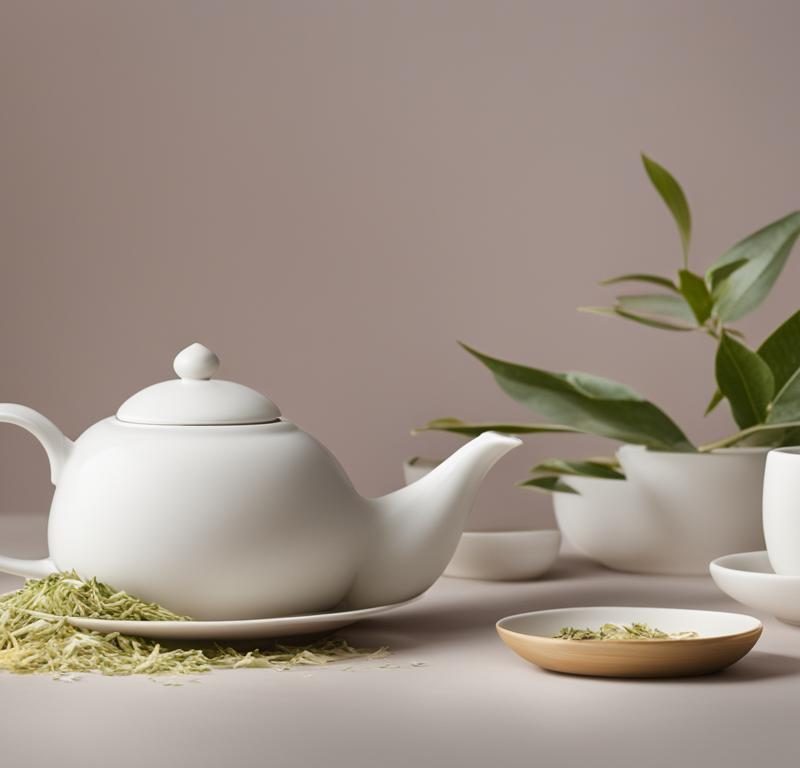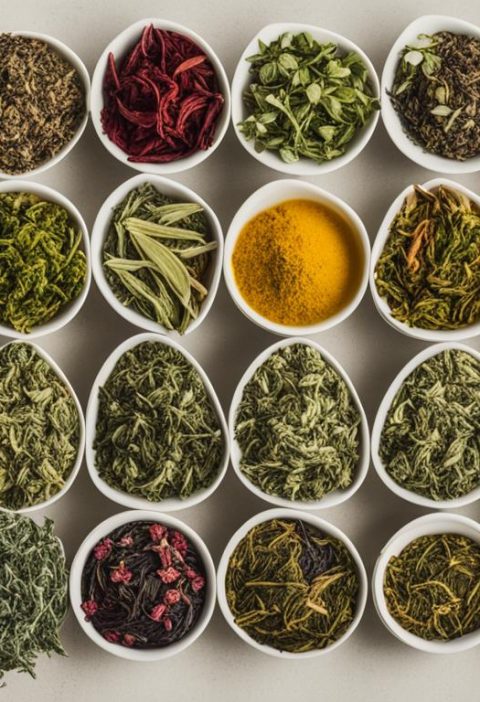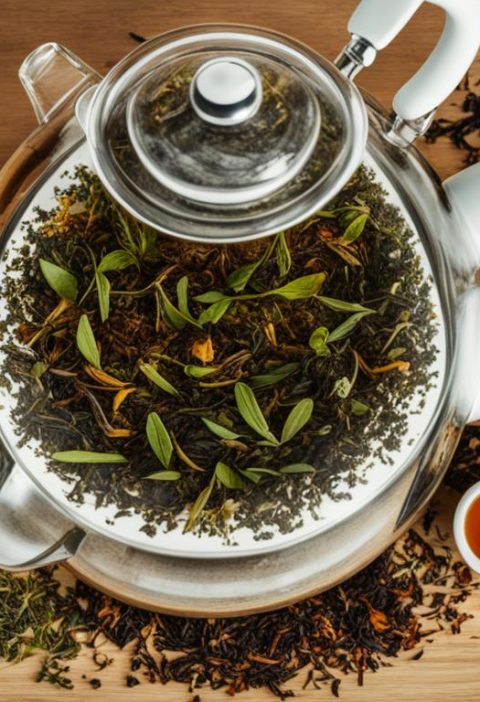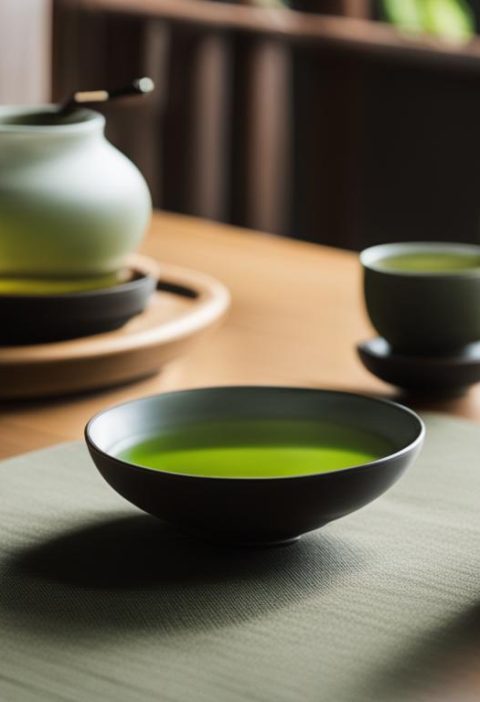The global white tea market is experiencing significant growth, driven by technological advancements, sustainability trends, and the increasing demand for environmentally friendly alternatives. As a professional journalist specializing in the beverage industry, I have closely examined the nuances of white tea and its value proposition. In this article, we will dive deep into the benefits of white tea, analyze its cost-effectiveness, and provide actionable insights to help you make an informed decision. Whether you are a tea enthusiast looking for a new addition to your tea collection or a health-conscious individual seeking a natural and refreshing beverage, this analysis of white tea benefits vs cost will provide you with valuable information to guide your purchasing decisions.
Why Choose White Tea?
White tea offers numerous health benefits that make it a compelling choice for tea enthusiasts and health-conscious individuals. Here are some reasons why you should consider white tea:
- Antioxidant properties: White tea is rich in antioxidants, which help protect the body against oxidative stress and promote overall health.
- Cancer-fighting abilities: Studies suggest that white tea may have potential cancer-fighting properties due to its high concentration of polyphenols.
- Cardiovascular health support: White tea may help improve cardiovascular health by reducing the risk of heart disease and lowering blood pressure.
- Weight management aid: Some research indicates that white tea may help boost metabolism and aid in weight management.
- Immune system boost: The presence of antioxidants and other beneficial compounds in white tea can support a strong immune system.
Understanding White Tea Cost
The cost of white tea can vary depending on several factors such as brand, quality, origin, and packaging. Here are some key points to consider:
- Brand and quality: Higher-quality white teas are generally more expensive due to the meticulous harvesting and processing methods involved.
- Origin: White teas sourced from prestigious tea-growing regions may command a higher price due to their reputation and uniqueness.
- Packaging: Specialty packaging and premium presentation can contribute to the cost of white tea.
Assessing White Tea Value
Evaluating the value of white tea involves considering both the benefits it provides and its cost. Here are some insights to help you assess the value of white tea:
- Cost-benefit analysis: Conducting a cost-benefit analysis can help determine if the perceived benefits of white tea align with the cost of the product.
- Return on investment: Evaluating the potential return on investment in terms of improved health and quality of life can provide valuable insights into the long-term worthiness of white tea consumption.
Factors Influencing White Tea Price
Several factors contribute to the pricing of white tea. Here are some key factors to consider when comparing prices:
- Type of white tea: Different types of white tea, such as Silver Needle or White Peony, can have varying price ranges.
- Region of origin: White teas from specific regions may be associated with higher quality and, consequently, higher prices.
- Quality of leaves: The quality of tea leaves, including their appearance and aroma, can impact the pricing.
Cost-Effectiveness of White Tea
Evaluating the cost-effectiveness of white tea involves considering its potential health benefits and overall value. Here are some factors to consider:
- Health benefits: White tea’s antioxidant properties and potential disease-fighting abilities can contribute to long-term savings in healthcare costs.
- Intangible benefits: The enjoyment and relaxation derived from white tea can have intangible benefits that add value to its cost.
The Value of White Tea in Daily Life
Incorporating white tea into your daily routine can bring value in various ways. Here are some benefits white tea can offer:
- Refreshing beverage option: White tea provides a refreshing and soothing drink that can be enjoyed throughout the day.
- Health benefits: The potential health benefits of white tea can contribute to an overall improved quality of life.
- Enjoyment and relaxation: White tea can provide a moment of relaxation and enjoyment, enhancing well-being.
Making an Informed Decision
When making a decision about white tea, it is important to assess its value comprehensively. Here are some steps to consider:
- Thorough assessment: Evaluate the health benefits, cost, personal preferences, and budget to make an informed decision.
- Pros and cons: Understand the potential health benefits and any considerations, such as caffeine content, to make a balanced decision.
- Research and consultation: Gather additional insights by consulting with tea experts or conducting research to inform your decision-making process.
Conclusion
In conclusion, white tea offers a range of health benefits and can be a valuable addition to one’s daily routine. Assessing the cost, value, and potential return on investment can help determine if white tea is worth the investment. By considering personal preferences, health goals, and budget, individuals can make an informed decision that aligns with their needs and preferences.
Key Takeaways:
- White tea offers antioxidant properties, potential cancer-fighting abilities, cardiovascular health support, weight management aid, and an immune system boost.
- Factors influencing white tea price include brand, quality, origin, packaging, and presentation.
- Evaluating the value of white tea involves conducting a cost-benefit analysis and considering the return on investment.
- The cost-effectiveness of white tea can be assessed based on its health benefits and intangible value.
- Incorporating white tea into daily life can provide a refreshing beverage option, potential health benefits, and moments of relaxation and enjoyment.
- Making an informed decision about white tea involves conducting a thorough assessment, considering the pros and cons, and gathering additional insights.
Why Choose White Tea?
White tea offers numerous health benefits that make it an excellent choice for tea enthusiasts. Its minimal processing ensures that beneficial compounds and nutrients are retained, resulting in a wholesome beverage option. Here are some compelling reasons to consider incorporating white tea into your daily routine:
- Antioxidant properties: White tea is rich in antioxidants, which play a crucial role in combating oxidative stress and protecting the body against various diseases.
- Potential cancer-fighting abilities: Research suggests that the antioxidants found in white tea may have anti-cancer properties, potentially inhibiting the growth of cancer cells and reducing the risk of certain types of cancer.
- Cardiovascular health support: Regular consumption of white tea has been associated with improved cardiovascular health, including a reduced risk of heart disease and lower levels of bad cholesterol.
- Weight management aid: White tea may contribute to weight management efforts by boosting metabolism and promoting fat oxidation, making it an ideal choice for individuals looking to achieve or maintain a healthy body weight.
- Immune system boost: The immune-boosting properties of white tea can help strengthen the body’s natural defenses and protect against common illnesses and infections.
It’s important to note that white tea generally contains lower levels of caffeine compared to other types of tea, making it a suitable option for individuals who are sensitive to caffeine or prefer a milder tea experience.
Image source: Shutterstock
Understanding White Tea Cost
When it comes to white tea, the cost can vary depending on several factors, including the brand, quality, origin, and packaging. Generally, higher-quality white teas tend to be more expensive, primarily due to the meticulous harvesting and processing methods involved in their production.
To gain a better understanding of the value proposition of white tea, it is essential to conduct a thorough cost-benefit analysis. This analysis takes into account not only the price of the tea but also its health benefits, taste preferences, and personal budget.
During the cost-benefit analysis, consider comparing the prices of different white tea brands and varieties. This can help you find the best options that fit your budget without compromising quality and taste. Additionally, take note of any unique features or additional benefits offered by specific white teas. Some brands may provide additional value through sustainable farming practices or innovative packaging.
Creating a table that compares the features and pricing of various white teas can be a useful tool in your cost-benefit analysis. This table allows for a quick and easy comparison, enabling you to make an informed decision based on factors such as price, quality, origin, taste, and any other preferences you may have. Here’s an example:
| Brand | Quality | Origin | Packaging | Price (per ounce) |
|---|---|---|---|---|
| Brand A | High | China | Tin canister | $X.XX |
| Brand B | Medium | India | Resealable pouch | $X.XX |
| Brand C | Low | Sri Lanka | Tea bags | $X.XX |
Remember, the cost-benefit analysis is not solely about finding the cheapest option. It is about determining the best value for your personal preferences and budget. By considering both the cost and the features offered by different white teas, you can make a more informed decision that suits your individual needs.
Assessing White Tea Value
When evaluating the value of white tea, we take into account the overall benefits it provides in terms of health, well-being, and enjoyment. To determine if the perceived value aligns with the cost of the product, we conduct a cost-benefit analysis. Additionally, we evaluate the return on investment in terms of improved health and quality of life, providing valuable insights into the long-term worthiness of white tea consumption.
White tea offers a range of health benefits, including antioxidant properties and potential disease-fighting abilities. It is known for its minimal processing, which helps retain beneficial compounds and nutrients. By considering the cost and conducting a comprehensive analysis of its value, we can make an informed decision about the worthiness of white tea.
| Factors | Value Assessment |
|---|---|
| Health Benefits | Including antioxidant properties and potential disease-fighting abilities |
| Well-being | Providing a refreshing and soothing beverage option |
| Enjoyment | Enhancing relaxation and overall quality of life |
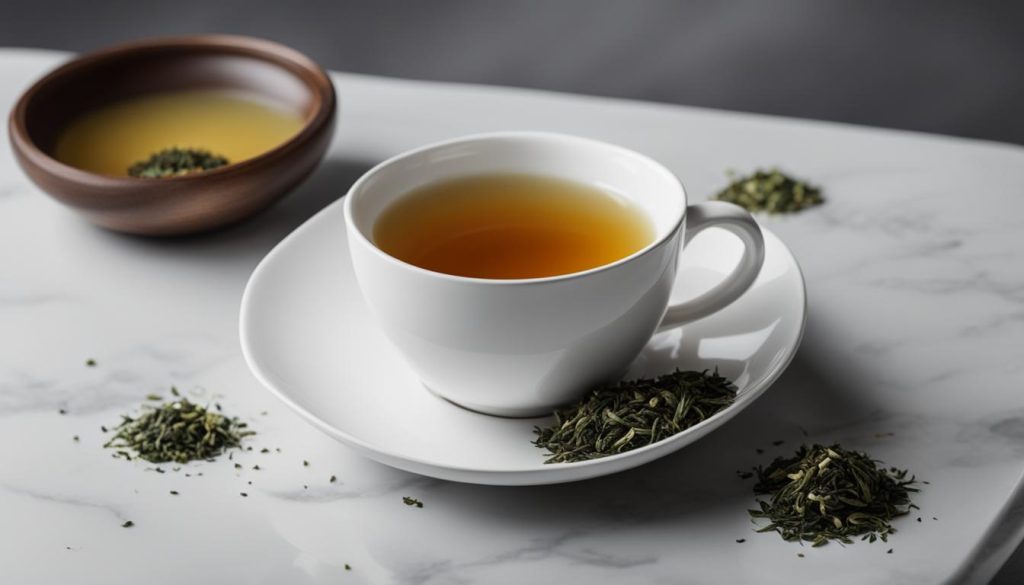
By conducting a thorough assessment, we can understand the value that white tea brings to our daily lives. Its potential to boost immunity, support cardiovascular health, and aid in weight management contributes to an overall improved quality of life. The enjoyment and relaxation derived from white tea also add value beyond its cost. Ultimately, the decision to consume white tea should be based on individual needs, preferences, and budget.
Factors Influencing White Tea Price
When it comes to the pricing of white tea, several factors come into play, influencing the cost of this beloved beverage. Understanding these factors can help you make an informed purchasing decision and find the right white tea that suits your preferences and budget.
Type of White Tea
The type of white tea you choose can impact its price. Different varieties of white tea, such as Silver Needle or White Peony, have their own unique characteristics and flavors. These premium varieties often command a higher price due to their exquisite taste and delicate brewing process.
Region of Origin
White tea is cultivated and harvested in various regions around the world. Certain regions, such as the Fujian province in China, are renowned for producing high-quality white tea, which can reflect in its price. The geographic location, climate, and soil conditions can all contribute to the flavor and overall quality of white tea.
Quality of Leaves
The quality of the tea leaves plays a significant role in determining the price. White teas made from young, tender leaves that are plucked during the optimal harvest window often have a higher price point. These leaves undergo minimal processing to preserve their natural flavors and health benefits.
Harvesting and Processing Methods
The meticulous process of harvesting and processing white tea can impact its price. Hand-picked leaves and artisanal production methods are often associated with higher-quality white teas, resulting in a higher price tag. The careful handling and minimal processing ensure that the tea retains its delicate flavors and beneficial compounds.
Brand Reputation
The reputation and brand name associated with a particular white tea can affect its price as well. Established tea brands with a history of producing premium-quality products may charge a premium for their white tea offerings. However, lesser-known or newer brands may offer competitive pricing while maintaining high product standards.
By considering these influencing factors, you can compare prices, evaluate the features of different white teas, and find a variety that suits your taste preferences and price range. Remember, the price of white tea reflects its quality and unique characteristics, making it worth exploring different options to discover the perfect cup of white tea for you.
Cost-Effectiveness of White Tea
When evaluating the cost-effectiveness of white tea, it is essential to consider the potential health benefits it offers. White tea is known for its antioxidant properties and potential disease-fighting abilities, which can contribute to long-term savings in healthcare costs. Studies have shown that the consumption of white tea may help prevent chronic diseases, such as heart disease and certain types of cancer.
Furthermore, the enjoyment and relaxation provided by white tea can have intangible benefits that add value to its cost. Taking the time to sit back and enjoy a cup of white tea can be a moment of tranquility in a busy day, promoting overall well-being.
To assess the cost-effectiveness of white tea, it is recommended to conduct a comprehensive economic evaluation that takes into account the cost of purchasing white tea and the potential savings in healthcare expenses. This evaluation can help determine if white tea is a worthwhile investment when considering its return on investment in terms of improved health and quality of life.
Healthcare cost savings
By consuming white tea regularly, individuals may experience various health benefits that can lead to potential savings in healthcare costs:
- Reduced risk of chronic diseases, such as heart disease, cancer, and diabetes
- Improved immune system function, resulting in fewer illnesses and medical treatments
- Enhanced cardiovascular health, leading to decreased risk of heart-related conditions
These health benefits can contribute to long-term cost savings by minimizing the need for extensive medical interventions and treatments.
It is important to note that while white tea can complement a healthy lifestyle and contribute to overall well-being, it should not be considered a substitute for medical advice or treatment. Consulting with healthcare professionals is always recommended for personalized health guidance.
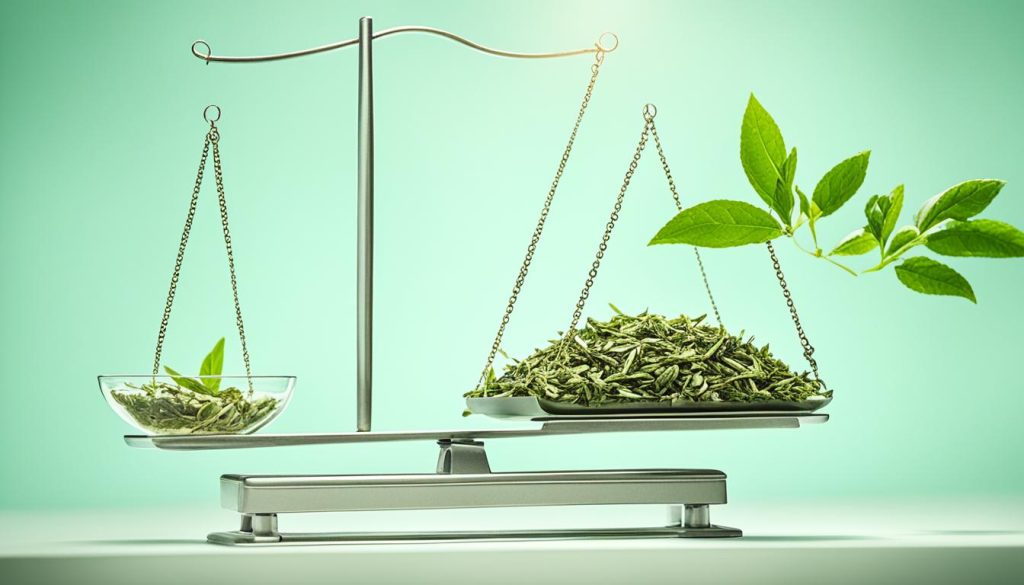
Comparison with other beverages
When evaluating the cost-effectiveness of white tea, it can be helpful to compare its price and health benefits with other popular beverages:
| Beverage | Price per serving | Health benefits |
|---|---|---|
| White tea | $0.30 | Rich in antioxidants, potential disease-fighting abilities |
| Coffee | $0.25 | Elevated energy levels, potential improved cognitive function |
| Soda | $0.50 | Carbonated and sugary, no significant health benefits |
| Water | $0.00 | Hydration, essential for overall health |
As seen in the comparison table, white tea offers a reasonable price per serving and provides notable health benefits, making it a cost-effective choice when compared to other beverages.
Final considerations
When assessing the cost-effectiveness of white tea, it is important to consider the overall value it brings to one’s life. The potential health benefits, enjoyment, and relaxation derived from white tea consumption can contribute to a higher quality of life and make it a worthwhile investment.
By conducting a cost-benefit analysis and considering the economic evaluation of white tea, individuals can make an informed decision about its inclusion in their lifestyle. However, it is crucial to evaluate one’s personal preferences, health goals, and budget when deciding whether white tea is the right choice.
The Value of White Tea in Daily Life
White tea provides more than just a simple beverage option; it brings value to daily life in multiple ways. Not only does it offer a refreshing and soothing taste, but it also offers numerous potential health benefits that contribute to an improved quality of life. Let’s explore how white tea can enhance your well-being and provide value beyond its cost.
Boosting Immunity
White tea contains antioxidants that can help boost your immune system. These antioxidants protect your body against harmful free radicals and strengthen your natural defenses, reducing the risk of infections and illnesses.
Supporting Cardiovascular Health
Studies have shown that white tea may have a positive impact on cardiovascular health. It may help lower cholesterol levels, reduce blood pressure, and improve blood vessel function, promoting a healthy heart and reducing the risk of cardiovascular diseases.
Aiding Weight Management
White tea has been associated with potential weight management benefits. It may help boost metabolism, enhance fat burning, and reduce the formation of new fat cells. Incorporating white tea into a balanced diet and active lifestyle can support your weight management goals.
The Enjoyment and Relaxation Factor
Alongside its health benefits, the act of enjoying a cup of white tea can also provide a sense of relaxation and well-being. The ritual of preparing and savoring the delicate flavors and aroma can be a soothing experience that helps you unwind, reduce stress, and improve mental clarity.
The Overall Value
Considering the potential health benefits, along with the enjoyment and relaxation factor, white tea offers a holistic value that goes beyond its cost. It enriches daily life by promoting well-being, vitality, and a sense of balance.
| Benefits | Value |
|---|---|
| Boosted immunity | Enhanced protection against infections and illnesses |
| Support for cardiovascular health | Reduced risk of heart diseases |
| Aiding weight management | Support for healthy weight goals |
| Enjoyment and relaxation | Promotes mental well-being and stress reduction |
Making an Informed Decision
In making an informed decision about white tea, we believe it is essential to conduct a thorough assessment of its value. This assessment should take into account various factors, including the potential health benefits, cost, personal preferences, and budget. By considering these aspects, you can gain a comprehensive understanding of the worthiness of white tea.
Pros and Cons of White Tea
When evaluating the value of white tea, it is crucial to weigh the pros and cons. Some of the pros include:
- White tea offers antioxidant properties that can help fight free radicals in the body and reduce oxidative stress.
- It may contribute to better cardiovascular health, thanks to its potential to improve blood pressure and cholesterol levels.
- White tea has a lower caffeine content compared to other types of tea, making it suitable for individuals who are sensitive to stimulants.
However, it is essential to consider the potential cons as well:
- White tea may not be as widely available as other types of tea, making it more difficult to find in certain regions.
- Some individuals may find the taste of white tea to be milder compared to other teas, which can be a personal preference.
- While white tea is generally considered safe, it is important to consult with a healthcare professional if you have any specific health concerns or conditions.
Consulting Experts and Conducting Research
When making decisions about white tea, consulting with tea experts or conducting research can be highly beneficial. These sources can provide additional insights into the value, benefits, and potential drawbacks of white tea. Tea experts can offer guidance on selecting the right variety, brewing methods, and other relevant considerations. Research studies and credible sources can provide scientific evidence and further understanding of the potential health benefits of white tea.
| Factors to Consider | Our Rating |
|---|---|
| Potential health benefits | ⭐⭐⭐⭐ |
| Cost | ⭐⭐⭐ |
| Personal preferences | ⭐⭐⭐ |
| Budget | ⭐⭐⭐⭐ |
In our assessment, we assign ratings to various factors that can influence the decision-making process. These ratings are based on our understanding of the importance and impact of each factor, allowing you to make a more informed decision about white tea. Please note that these ratings may vary based on individual circumstances, preferences, and priorities.
By conducting a comprehensive assessment, considering the pros and cons, and seeking expert advice, you can make an informed decision about whether white tea is the right choice for you. Remember to evaluate the value proposition, taking into account both the potential health benefits and your personal preferences.
Conclusion
In conclusion, the benefits of white tea make it a valuable addition to your daily routine. By carefully evaluating the cost, value, and potential return on investment, you can determine if white tea is worth the investment for you. It is essential to take into consideration your personal preferences, health goals, and budget when making this decision.
White tea offers a range of health benefits, such as its antioxidant properties, potential cancer-fighting abilities, support for cardiovascular health, weight management aid, and immune system boost. Its minimal processing helps retain beneficial compounds and nutrients. Additionally, white tea’s lower caffeine content makes it suitable for individuals sensitive to caffeine.
By conducting a cost-benefit analysis and assessing the overall value white tea provides in terms of health, well-being, and enjoyment, you can determine if the perceived value aligns with the cost of the product. Considering the factors that influence white tea’s price, such as the type, origin, quality, and brand reputation, can help you make an informed purchasing decision. Finally, taking into account the potential long-term savings in healthcare costs, as well as the intangible benefits of enjoyment and relaxation, can contribute to the overall cost-effectiveness of white tea.
